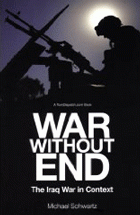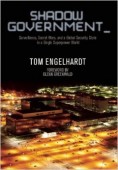At 36% to 37% in the latest polls, Donald Trump’s approval rating is in a ditch in what should still be the “honeymoon” period of his presidency. And yet, compared to Congress (25%), he’s a maestro of popularity. In fact, there’s just one institution in American society that gets uniformly staggeringly positive votes of “confidence” from Americans in polls and that’s the U.S. military (83%). And this should be the greatest mystery of them all.
That military, keep in mind, hasn’t won a significant conflict since World War II. (In retrospect, the First Gulf War, which once seemed like a triumph beyond compare for the globe’s highest-tech force, turned out to be just the first step into the never-ending quagmire of Iraq.) In this century, the U.S. military has, in fact, stumbled from one “successful” invasion to another, one terror-spreading conflict to the next, without ever coming up for air. Meanwhile, the American taxpayer has poured money into the Pentagon and the rest of the national security state in amounts that should boggle the mind. And yet, the U.S. hasn’t been able to truly extricate itself from a single country it's gotten involved in across the Greater Middle East for decades. In the wake of its ministrations, nations have crumbled, allies have been crippled, and tens of millions of people across a vast region of the planet have been uprooted from their homes and swept into the maelstrom. In other words, Washington’s version of imperial war fighting should be seen as the record from hell for a force regularly hailed here as the “finest” in history. The question is: finest at what?
All of this is on the record. All of this should be reasonably apparent to anyone half-paying attention and yet the American public’s confidence in the force fighting what Rebecca Gordon has termed “forever wars” is almost off the charts. For that, you can undoubtedly blame, in part, the urge of the military high command never again to experience a citizen’s army roiled by antiwar protests and in near revolt as in the Vietnam era. As a result, in 1973, the draft was ended and in the decades that followed the public was successfully demobilized when it came to American war. George W. Bush’s classic post-9/11 suggestion that Americans respond to the horror of those falling towers by visiting Disney World and enjoying “life the way we want it to be enjoyed” caught that mood exactly. But the explanation undoubtedly goes deeper yet, as TomDispatch regular Gordon, author of American Nuremberg, suggests today. Tom
America at War Since 9/11
Reality or Reality TV?
By Rebecca GordonThe headlines arrive in my inbox day after day: “U.S.-led airstrikes in Syria killed hundreds of civilians, U.N. panel says.” “Pentagon wants to declare more parts of world as temporary battlefields.” “The U.S. was supposed to leave Afghanistan by 2017. Now it might take decades.” There are so many wars and rumors of war involving our country these days that it starts to feel a little unreal, even for the most devoted of news watchers. And for many Americans, it’s long been that way. For them, the meaning of war is closer to reality TV than it is to reality.
If you want a number, try 194. That’s how many countries there are on planet Earth (give or take one or two). Today, Nick Turse reports a related number that should boggle your mind: at least 137 of those countries, or 70% of them, already have something in common for 2017 and the year’s not even half over. They share the experience of having American Special Operations forces deployed to their territory. Assumedly, those numbers don’t include Russia, China, Iran, Andorra, or Monaco (unless guarding global casinos is a new national priority for our casino capitalist president). Still, they’re evidence of the great bet American casino militarism has made in these years -- that elite special ops troops could do what the rest of the U.S. military couldn’t: actually achieve victory in a conflict or two.
Think of the Special Operations Command (or SOCOM) as having won the lottery in these years. From thousands of elite troops in the 1980s, their numbers have ballooned to about 70,000 at present -- a force larger, that is, than the armies of many nations, with at least 8,000 of them raiding, training, and advising abroad at any given moment. In fact, these days it’s a reasonable bet that if American war is intensifying anywhere, they’re front and center. A year ago in Syria, for instance, there were perhaps 50 special operators helping anti-ISIS forces of various sorts. Now, as the battle for the Islamic State’s “capital,” Raqqa, intensifies, that number has soared to 500 and is evidently still rising. (Something similar is true for Iraq and undoubtedly, after the Pentagon dispatches its latest mini-surge of personnel to Afghanistan in the coming months, that country, too.)
As for money, SOCOM has certainly won the Pentagon’s version of roulette. (Of course, in that version, everybody wins, even if some are more triumphant than others.) Between 2001 and 2014, the special ops budget increased by a not-so-modest 213%, and its budget has continued to grow since.
There’s only one category in which the special ops bet has turned out to be anything but a winning hand and that’s the subject of TomDispatch regular Nick Turse’s latest report on the operations of SOCOM globally. I’m talking about actual victories, not exactly a winner of a category for the U.S. military in the twenty-first century. And by the way, given the astronomical growth and uses of America’s Special Operations Forces and their centrality to the U.S. military story over the last nearly 16 years, aren’t you just a little surprised that the best reportage on the phenomenon can’t be found in the mainstream media, but in Turse’s reports at TomDispatch? Tom
A Wide World of Winless War
Globe-Trotting U.S. Special Ops Forces Already Deployed to 137 Nations in 2017
By Nick TurseThe tabs on their shoulders read “Special Forces,” “Ranger,” “Airborne.” And soon their guidon -- the “colors” of Company B, 3rd Battalion of the U.S. Army’s 7th Special Forces Group -- would be adorned with the “Bandera de Guerra,” a Colombian combat decoration.
“Today we commemorate sixteen years of a permanent fight against drugs in a ceremony where all Colombians can recognize the special counternarcotic brigade’s hard work against drug trafficking,” said Army Colonel Walther Jimenez, the commander of the Colombian military’s Special Anti-Drug Brigade, last December. America’s most elite troops, the Special Operations forces (SOF), have worked with that Colombian unit since its creation in December 2000. Since 2014, four teams of Special Forces soldiers have intensely monitored the brigade. Now, they were being honored for it.
A billionaire in the White House. Only in America, right?
In an age of billionaires, whether the voters who elected him thought that he was the one who could do what was needed in the nation’s capital or were just giving the finger to Washington, the effect was, as Donald Trump might say, of “historic significance.” His golf courses, hotels, properties of every sort are thriving and the money from them pouring into his family’s coffers. His Mar-a-Lago club doubled its membership fee after he was elected; the new Trump hotel in Washington has become a notorious hotspot for foreign diplomats eager to curry favor with the administration; and so it goes in the new America. Already three lawsuits have been filed -- by Citizens for Responsibility and Ethics in Washington (a watchdog outfit), the attorneys general of Maryland and Washington D.C., and 200 Democratic congressional representatives -- challenging the president for breaching the emoluments clause of the Constitution. Investigations of presidential obstruction of justice and possibly even abuse of power are evidently underway (to the accompaniment of voluminous tweets by you know who), and the president has been lawyering up bigly, as has Vice President Pence and just about everyone else in sight, including the president’s personal lawyer who now has a lawyer of his own. President Trump has, in fact, been filling in his roster of personal lawyers far more effectively than he’s been able to fill basic posts in his government.
And speaking of historic significance, around him is the richest crew ever to serve in a cabinet, the sort of plutocratic A-team that gives government of, by, and for the 1% genuine meaning. Now tell me, if this isn’t a classic only-in-America story, what is? Okay, maybe it’s not classic classic, not unless you go back to the Gilded Age of the nineteenth century. It’s certainly not the version of American promise that was in the high-school history books of my youth, but if it isn’t the twenty-first-century version of the American story, then what is? In a land that’s released so much plutocratic money into politics that it’s buried Washington in Koch brothers dollars, in a country where inequality has in recent years hit historic highs, Donald Trump seems to have been our own El Dorado (or perhaps El Mar-a-Lago). He’s the destination toward which this country has evidently been traveling since, in 1991, the Soviet Union imploded and the United States, in all its triumphalist glory, became the “sole superpower” on planet Earth.
If anything, Trump’s ascendancy should have been the equivalent of a klieg light illuminating our recent American journey. His rise to... well, whatever it is... has lit up the highway that brought us here in a new way and, in the spirit of his coming infrastructure program for America, it turns out to have been a private toll road that wound through a landscape of Potemkin villages en route to the Oval Office. One thing’s for sure: wherever we’ve landed, it certainly isn’t where the “end of history” crowd of the last years of the previous century thought we’d be when the historians finally stopped typing and “liberal Democracy” reigned supreme. With that in mind, join Andrew Bacevich, TomDispatch regular and author of America’s War for the Greater Middle East, in considering just how, at this moment, historians should start reimagining our American age amid the rubble of our previous versions of history. Tom
Kissing the Specious Present Goodbye
Did History Begin Anew Last November 8th?
By Andrew J. BacevichForgive me for complaining, but recent decades have not been easy ones for my peeps. I am from birth a member of the WHAM tribe, that once proud, but now embattled conglomeration of white, heterosexual American males. We have long been -- there’s no denying it -- a privileged group. When the blessings of American freedom get parceled out, WHAMs are accustomed to standing at the head of the line. Those not enjoying the trifecta of being white, heterosexual, and male get what’s left.
Not that anyone in a position of power seems to notice, but there’s a simple rule for American military involvement in the Greater Middle East: once the U.S. gets in, no matter the country, it never truly gets out again. Let’s start with Afghanistan. The U.S. first entered the fray there in 1979 via a massive CIA-led proxy war against the Soviets that lasted until the Red Army limped home in 1989. Washington then took more than a decade off until some of the extremists it had once supported launched the 9/11 attacks, after which the U.S. military took on the role abandoned by the Red Army and we all know where that’s ended -- or rather not ended almost 16 years later. In the “longest war” in American history, the Pentagon, recently given a free hand by President Trump, is reportedly planning a new mini-surge of nearly 4,000 U.S. military personnel into that country to “break the stalemate” there. Ever more air strikes and money will be part of the package. All told, we’re talking about a quarter-century of American war in Afghanistan that shows no sign of letting up (or of success). It may not yet be a “hundred-years’ war,” but the years are certainly piling up.
Then, of course, there’s Iraq where you could start counting the years as early as 1982, when President Ronald Reagan’s administration began giving autocrat Saddam Hussein's military support in his war against Iran. You could also start with the first Gulf War of 1990-1991 when, on the orders of President George H.W. Bush, the U.S. military triumphantly drove Saddam’s army out of Kuwait. Years of desultory air strikes, sanctions, and other war-like acts ended in George W. Bush’s sweeping invasion and occupation of Iraq in the spring of 2003, a disaster of the first order. It punched a hole in the oil heartlands of the Middle East and started us down the path to, among other things, ISIS and so to Iraq War 3.0 (or perhaps 4.0), which began as an air campaign in August 2014 and has yet to end. In the process, Syria was pulled into the mix and U.S. efforts there are still ratcheting up almost two years later. In the case of Iraq, we’re minimally talking about almost three decades of intermittent warfare, still ongoing.
And then, of course, there’s Somalia. You remember the Blackhawk Down incident in 1993, don't you? That was a lesson for the ages, right? Well, in 2017, the Trump administration is sending more advisers and trainers to that land (and the U.S. military has recently suffered its first combat death there since 1993). U.S. military activities, including drone strikes, are visibly revving up at the moment. And don’t forget Libya, where the Obama administration (along with NATO) intervened in 2011 to overthrow autocrat Muammar Gaddafi and where the U.S. military is still involved more than six years later.
Last but hardly least is Yemen. The first U.S. special ops and CIA personnel moved into a “counter-terrorism camp” there in late 2001, part of a $400 million deal with the government of then-strongman Ali Abdullah Saleh, and the CIA conducted its very first drone assassination in that country in November 2002. Almost 16 years later, as TomDispatch regular Bill Hartung reports, the U.S. is supporting a grim Saudi air and ground war of terror there, while its own drone strikes have risen to new highs.
It’s a remarkable record and one to keep in mind as you consider Hartung’s account of President Trump’s fervent decision to back the Saudis in a big league way not just in their disastrous Yemeni war, but in their increasingly bitter campaign against regional rival Iran. After so many decades of nearly unending conflict leading only to more of the same and greater chaos, you might wonder whether an alarm bell will ever go off in Washington when it comes to the U.S. military and war in the Greater Middle East -- or is Iran next? Tom
Destabilizing the Middle East (Yet More)
The Saudi Regime Is Playing Donald Trump With Potentially Disastrous Consequences
By William D. HartungAt this point, it’s no great surprise when Donald Trump walks away from past statements in service to some impulse of the moment. Nowhere, however, has such a shift been more extreme or its potential consequences more dangerous than in his sudden love affair with the Saudi royal family. It could in the end destabilize the Middle East in ways not seen in our lifetimes (which, given the growing chaos in the region, is no small thing to say).
Trump’s newfound ardor for the Saudi regime is a far cry from his past positions, including his campaign season assertion that the Saudis were behind the 9/11 attacks and complaints, as recently as this April, that the United States was losing a “tremendous amount of money” defending the kingdom. That was yet another example of the sort of bad deal that President Trump was going to set right as part of his “America First” foreign policy.
Given this background, it came as a surprise to pundits, politicians, and foreign policy experts alike when the president chose Riyadh, the capital of Saudi Arabia, as the very first stop on his very first overseas trip. This was clearly meant to underscore the importance his administration was suddenly placing on the need to bolster the long-standing U.S.-Saudi alliance.
If you want to know just what kind of mental space Washington’s still-growing cult of “national security” would like to take us into, consider a recent comment by retired general and Department of Homeland Security Secretary John Kelly. In late May on Fox and Friends, he claimed that “the American public would ‘never leave the house’ if they knew what he knew about terrorist threats.”
That seems like a reasonable summary of the national security state’s goal in the post-9/11 era: keep Americans in a fear-filled psychic-lockdown mode when it comes to supposed threats to our safety. Or put another way, the U.S. is a country in which the growing power of that shadow state and its staggering funding over the last decade and a half has been based largely on the promotion of the dangers of a single relatively small peril to Americans: “terrorism.” And as commonly used, that term doesn’t even encompass all the acts of political harm, hatred, and intimidation on the landscape, just those caused by a disparate group of Islamic extremists, who employ the tactics by which such terrorism is now defined. Let’s start with the irony that, despite the trillions of dollars that have poured into the country’s 17 intelligence agencies, its post-9/11 Department of Homeland Security, and the Pentagon in these years, the damage such terrorists have been able to inflict from Boston to San Bernardino to Orlando, while modest in a cumulative sense, has obviously by no means been stopped. That, in turn, makes the never-ending flow of American taxpayer dollars into what we like to call “national security” seem a poor investment indeed.
To deal with so many of the other perils in American life, it would occur to no one to build a massive and secretive government machinery of prevention. I’m thinking, for instance, of tots who pick up guns left lying around and kill others or themselves, or of men who pick up guns or other weapons and kill their wives or girlfriends. Both those phenomena have been deadlier to citizens of the United States in these years than the danger against which the national security state supposedly defends us. And I’m not even mentioning here the neo-Nazi and other white terrorists who seem to have been given a kind of green light in the Trump era (or even the disturbed Bernie Sanders supporter who just went after congressional Republicans on a ball field in Virginia). Despite their rising acts of mayhem, there is no suggestion that you need to shelter in place from them. And I’m certainly not going to dwell on the obvious: if you really wanted to protect yourself from one of the most devastating killers this society faces, you might leave your house with alacrity, but you’d never get into your car or any other vehicle. (In 2015, 38,300 people died on American roads and yet constant fear about cars is not a characteristic of this country.)
It’s true that when Islamic terrorists strike, as in two grim incidents in England recently, the media and the security state ramp up our fears to remarkable heights, making Americans increasingly anxious about something that’s unlikely to harm them. Looked at from a different angle, the version of national security on which that shadow state funds itself has some of the obvious hallmarks of both an elaborate sham and scam and yet it is seldom challenged here. It’s become so much a part of the landscape that few even think to question it.
In his latest post, Ira Chernus, TomDispatch regular and professor of religious studies, reminds us that it hasn’t always been so, that there was a moment just a half-century ago when the very idea of American national security was confronted at such a basic level that, ironically, the challenge wasn't even understood as such. In this particular lockdown moment, however, perhaps it's worth staying in your house and following Chernus, who’s visited the 1960s before for this website, on a long, strange trip back to 1967 and the famed Summer of Love. Tom
A Psychedelic Spin on “National Security”
The Summer of Surprisingly Political Love
By Ira ChernusIt’s the 50th anniversary of the Summer of Love. What better place to celebrate than that fabled era’s epicenter, San Francisco’s Golden Gate Park, where the DeYoung Museum has mounted a dazzling exhibition, chock full of rock music, light shows, posters, and fashions from the mind-bending summer of 1967?
If you tour the exhibit, you might come away thinking that the political concerns of the time were no more than parenthetical bookends to that summer’s real action, its psychedelic counterculture. Only the first and last rooms of the large show are explicitly devoted to political memorabilia. The main body of the exhibit seems devoid of them, which fits well with the story told in so many history books. The hippies of that era, so it’s often claimed, paid scant attention to political matters.
Take another moment in the presence of all the artifacts of that psychedelic summer, though, and a powerful (if implicit) political message actually comes through, one that couldn’t be more unexpected. The counterculture of that era, it turns out, offered a radical challenge to a basic premise of the Washington worldview, then and now, a premise accepted -- and spoken almost ritualistically -- by every president since Franklin Delano Roosevelt: nothing is more important than our “national security.”





















